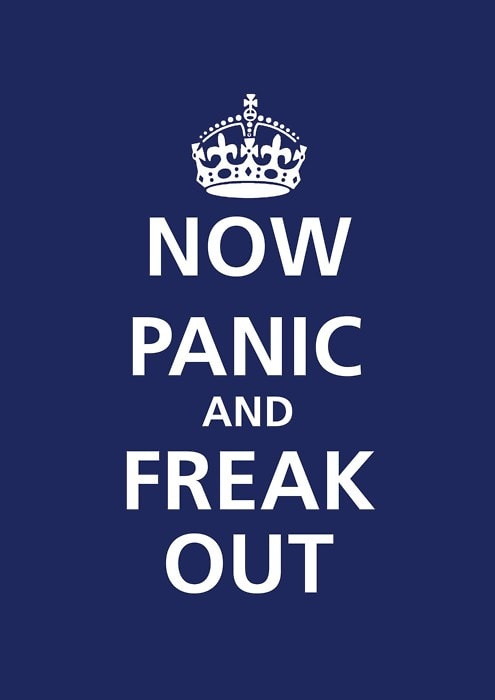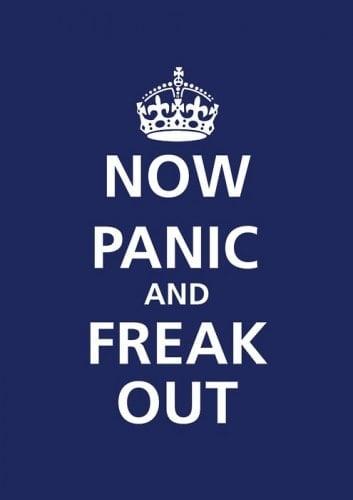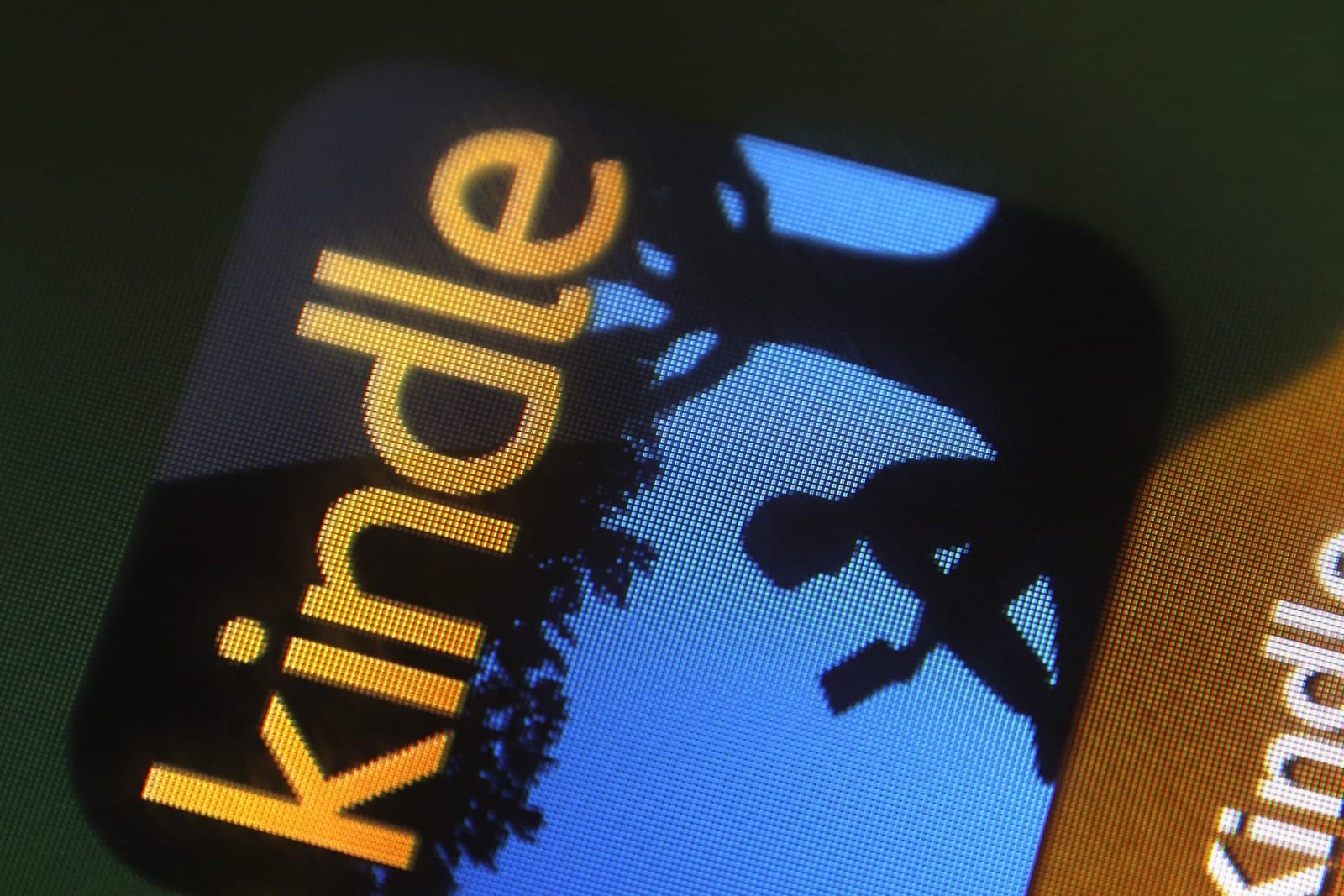eBooks will Bring Chaos, Panic, and Disorder

 I’ve had an epiphany this past week, and it finally put the scale of the ebook revolution into focus. Some publishers are panicked because they think everything is about to change. They see ebooks as a coming tsunami that could wipe away their existing business model.
I’ve had an epiphany this past week, and it finally put the scale of the ebook revolution into focus. Some publishers are panicked because they think everything is about to change. They see ebooks as a coming tsunami that could wipe away their existing business model.
They should be afraid; vast chunks of the existing book market will be switched to digital content inside the next 5 years.
I believe this will happen to publishing because it has already happened with music.
You might disagree with me, and you could point at the sales figures for CDs vs MP3s as proof. The current music market doesn’t prove me wrong; you’re looking at the wrong figures. If you want to understand the why the figures are wrong I’ll first have to cover the fundamental difference between publishing and music. This will take a brief lesson on the history of technology.
A hundred years ago, the recording industry got its start with wax cylinders. These were quickly replaced with gramaphones (vinyl records), which eventually got replaced by tapes. Next came CDs in the mid 1980s, and finally MP3s right around the turn of the millennium. (BTW, the reason CDs stuck around and MP3s didn’t take over the market is because a CD is already a digital product. It is trivially simple to rip a CD, and the same goes for burning MP3s to a CD.)
In all that time, publishing has relied on paper books as their distribution medium. While the recording industry went through 5 different transitions, publishing haven’t seen any. They’re still working in the age of the gramaphone.
People are going to jump on to the ebook band wagon faster than you might believe possible, but if you accept the paper books as vinyl records analogy then you might change your mind.
Think about what it would be like if everyone still used vinyl records for their music collection (no tapes, no CDs, no nothing). You’d have to carry around those honking big disks every where you went as well as a record player. The good models might get smaller, but they would still be rather bulky.
What would happen to the vinyl records if someone invented an MP3 player? Obviously most would dabble at first, but they would soon jump in with both feet. MP3s players are so much more convenient that any heavy music listener would leap at the chance to get one.
Read the previous paragraph again and swap out paper books and ebooks in the appropriate places. Doesn’t that sound a lot like the existing book market?
So ask yourself this: What percentage of the market is made up by vinyl records? I’m pretty sure that tiny percentage is how important paper will be by the end of the next 5 years.
Now do you see why publishers are scared? They should be. This is not just a transition; this is a real honest to Cthulhu revolution.
What do you think?


Comments
dave blevins April 2, 2011 um 1:56 pm
"Tis worse than you think: every author (almost) creates a digital product ON THEIR OWN, no recording studio, no backup singers/band, BY THEMSELVES. A comparison would be if the singers/bands sent the music labels a MP3 of their product using their own recording/mixing equipment. This would make the music creators able to trivially create a consumer-ready product AS THE AUTHORS CAN TODAY.
elmonica April 2, 2011 um 2:04 pm
PEOPLE ALREADY HAVE A LIFETIME OF BOOKS TO READ!
GET OUT OF THE BUSINESS WHILE YOU STILL CAN!!
Tim Carmody April 3, 2011 um 2:17 am
I wouldn’t be so quick to lump the last 100+ years of publishing together as "paper books." The mass-market paperback revolution in the 1930s and after was a genuine revolution in the production, consumption, and marketing of books. I think that’s at least a shift comparable to that between records and tapes — and its effect has lasted much longer.
Nate the great April 3, 2011 um 6:47 am
When i first wrote this post I was going to use a photo of several different vinyl records. It would have been great for refuting your point about hardback and paperback production.
The medium didn’t change, just some minor details. Tapes, on the other hand, were a whole new medium.
Mario April 3, 2011 um 4:21 am
I do not think that paper books will ever be totally replaced by e-book. You sad that e-books are more convenient for traveling, but fact is that most of us prefer to read at home, in comfort of bed or reading chair. And, there is just that something in holding a book, feel the smell of paper, hear the pages shuffling that you cant get with e-book. Which one would you chose? You have hardcover on one side and e-book on other? Hardcover is my bet in 9/10 readers. Then there is "green" theory of saving forests. But how much material do you need to make e-reader? And what is the material that e-reader is made of? And after couple of years it will be useless and finish in trash because of never and better devices, new format etc. Printed book may stay in shelf for hundred of years and still be usable. Don’t get me wrong, I do think that e-books are future, but I do not believe that they are going to replace paper. With technology advancements, in ten years it may be let’s say 8:2 ratio for E-books, but not because e-book reading is easier but because it will be much cheaper.
willem April 3, 2011 um 5:36 am
Makes sense to me. There are also feedback loops here, as brilliantly explained at http://www.librarything.com/blogs/thingology/2010/11/feedback-loops-in-ebook-success/
In a few succint paragraphs Tim Spalding reveals the future of print publishing – Apocalypse Now!
Tyler April 3, 2011 um 8:25 am
I work with a lot of younger people and most of them never buy CDs but just download their music. Also look at the music department of Best Buy and see how it is constantly shrinking.
That saying, I believe you are correct about the time table of five years. In five years from now, more revolutionary devices in e readers will come about that will turn people into e reading much like the Color Nook has done. Like it or not, the Color Nook is a great marketing ploy by BnN.
Many people that did not want to use an e ink reader because they were ugly or not to their liking, turned to the Color Nook because it is a beautiful device. There will be many more e readers coming out that will entice people much the same way.
I find it much easier and nicer to read off my e reader than a book even in bed. I don’t really miss the turning page or the smell of a book.
Aitken Drum April 3, 2011 um 6:20 pm
It was a long way from wax to vinyl. It was wax>shellac>vinyl. Things move a lot more quickly now.
Alan Brook April 4, 2011 um 4:53 am
A couple of developments worth adding as they were critically important to the success of mp3 (which had been around for a while before taking off):
1. The rise of the internet meant it was possible to distribute digital music for the first time on a large scale
2. Mp3 provided a standard of compression that was essential due to slow internet speeds
3. The end user price was zero (people like that price)
4. The price of CD’s was still high
5. Apple produced a game changing device and spent a fortune marketing it to the mainstream (a device is a tangible thing that is easier for people to like than a format)
In short, Mp3 is inferior to previous audio standards (except maybe tape) but was convenient and allowed mass peer to peer distribution.
Its likely that this will be mirrored by ebooks but it won’t be total annihilation- some people like having objects & its not very romantic giving a digital file as a present.
Addison Gast April 8, 2011 um 7:07 pm
I agree ( 90%) with Mario "I do not think that paper books will ever be totally replaced by e-book. You sad that e-books are more convenient for traveling," (unquote) Most remarks from new ebook reades start with the weight comparrison. The best advantage IMHO of the age of the EBook is for authors. The time from finish to publication is a keystroke.
Melissa Douthit April 18, 2011 um 6:11 pm
I actually don’t think it will take 5 years. I think that it will happen within a year. This last month, February’s data came in (AAP) and the e-book market went from 10% to 30%. In one month! So my guess is that by this time next year, e-books will be the dominant format of reading. Marc Parrish of B&N predicted two years. Time will tell …